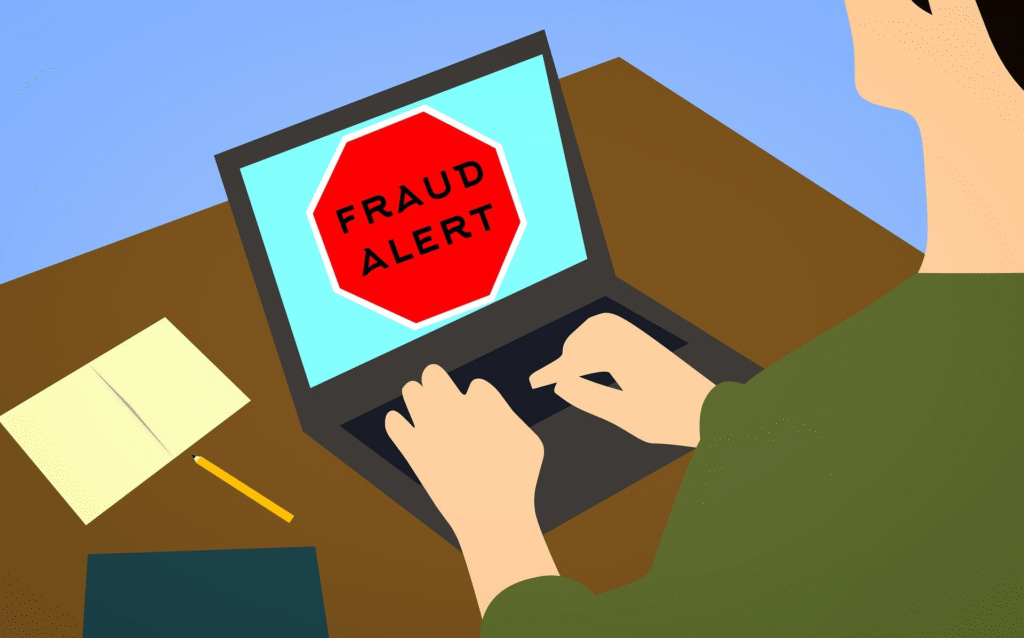Avoiding Bitcoin Scams and Fraud: The dangers of Bitcoin, including fraud and scams, are growing in popularity along with it. Fraudsters are always coming up with new ways to take advantage of unwary users, from malware and impersonation schemes to phishing assaults and fraudulent investment platforms. Because Bitcoin transactions are decentralized and irreversible, it is practically impossible to recover lost money, so knowledge and prevention are essential.
Protecting your investments requires knowing how these scams operate and how to spot warning signs, regardless of your level of experience as an investor. We will look at the most prevalent Bitcoin scams in this tutorial, along with doable precautions you may take to stay safe.
Avoiding Bitcoin Scams and Fraud: A Complete Guide.

Avoiding Bitcoin Scams and Fraud: Bitcoin has drawn its share of scammers and fraudsters as it continues to grow in acceptance and popularity throughout the world. There are several traps for the unwary, ranging from phishing scams and Ponzi schemes to phony exchanges. Protecting your digital assets requires knowing how these scams operate and how to prevent them, regardless of your level of experience as an investor.
In this article, we’ll explore the most common types of Bitcoin scams, how to recognize red flags, and practical tips to keep your crypto safe.
Why Bitcoin Attracts Scammers.
Avoiding Bitcoin Scams and Fraud: Decentralization, privacy, and the possibility of large profits are what make Bitcoin so alluring. However, fraudsters find it appealing due to these same characteristics. Bitcoin cannot be reclaimed once it has been sent since transactions are irreversible. Furthermore, if you are cheated, you have no central authority to turn to.
By 2025, crime using cryptocurrency is still developing. Blockchain analytics companies claim that in recent years, scammers have stolen billions of dollars’ worth of cryptocurrencies, much of it from people who fell for well designed schemes.
Common Types of Bitcoin Scams.

The first line of defense is being aware of the techniques scammers employ. The most common forms of Bitcoin fraud are listed here.
(1) Phishing Scams.
Phishing involves tricking users into giving away sensitive information such as private keys, wallet passwords, or seed phrases.
-
How it works: Victims receive emails, texts, or social media messages with fake links to what appears to be legitimate crypto wallets or exchanges.
-
Red flags: Poor grammar, urgent requests, or URLs that are slightly misspelled (e.g., “blockcain.com” instead of “blockchain.com”).
How to avoid it: Never click on suspicious links. Always access your crypto wallets and exchanges by typing the URL directly or using trusted bookmarks.
(2) Ponzi and Pyramid Schemes.
These scams promise high returns with little or no risk and rely on recruiting new investors to pay returns to earlier investors.
-
Example: Bitconnect, a well-known Ponzi scheme, collapsed in 2018, costing investors hundreds of millions of dollars.
How to avoid it: If an opportunity promises “guaranteed returns” or urges you to recruit others, it’s likely a scam. Remember, Bitcoin itself doesn’t pay interest or dividends.
(3) Fake Exchanges and Wallets.
Scammers create fake trading platforms or mobile wallets to steal deposits or private keys.
-
How it works: Victims are lured to these platforms through social media ads or phishing. They deposit Bitcoin but can never withdraw it.
How to avoid it: Only use exchanges or wallets that are widely reviewed and recommended by trusted sources. Check for HTTPS encryption and verify domain names carefully.
(4) Impersonation Scams.
Scammers pretend to be famous figures (e.g., Elon Musk) or legitimate companies, offering “giveaways” that require you to send Bitcoin first.
-
How it works: You might see a tweet or YouTube video saying, “Send 0.1 BTC and get 0.5 BTC back!”
How to avoid it: No legitimate person or company will ever ask you to send crypto to receive more in return. This is always a scam.
(5) Malware and Ransomware.
Malware can be used to track keystrokes or take control of your computer, stealing private keys or passwords.
-
How it spreads: Through fake software downloads, malicious email attachments, or infected websites.
How to avoid it: Keep your antivirus software updated. Never download crypto tools from unofficial sources.
(6) Social Engineering.
These scams rely on manipulating your emotions—such as fear, urgency, or greed—to make you act without thinking.
-
Examples: A scammer pretending to be tech support, or claiming your wallet is under threat unless you act immediately.
How to avoid it: Take your time. Always verify requests independently, especially if they come out of nowhere.
Key Principles to Protect Yourself.
Now that you know the common scams, here are some actionable steps to keep your Bitcoin safe.
(1) Use Cold Wallets for Storage.
A cold wallet (offline wallet) is not connected to the internet, making it far more secure than a hot wallet (online).
- Use hardware wallets like Ledger or Trezor.
- Never store large amounts of Bitcoin on an exchange.
- (2) Enable Two-Factor Authentication (2FA).
Make sure that 2FA is enabled on both your wallet and exchange accounts. Use apps like Google Authenticator or Authy, not SMS-based 2FA, which can be vulnerable to SIM-swap attacks.
(3) Double-Check URLs and Emails.
Before logging into any crypto-related site, verify the URL. Bookmark official sites, and avoid clicking on links from emails or social media.
(4) Never Share Your Private Keys or Seed Phrase.
This is the #1 rule. Anyone who has your private key or seed phrase can access your wallet and steal your Bitcoin.
(5) Stay Informed.
Scammers are always evolving. Follow trusted crypto news sites, Reddit communities, and YouTube channels to stay updated on new scams.
(6) Report Suspicious Activity.
If you’ve encountered a scam or think someone might be in danger of falling for one, report it. Many countries have crypto fraud hotlines or websites. You can also alert the platform being impersonated.
What to Do If You’ve Been Scammed.
Unfortunately, once Bitcoin is sent, it’s nearly impossible to recover. However, there are still steps you can take:
- Report to local authorities: File a police report.
- Report to national cybercrime agencies (e.g., FBI’s IC3 in the U.S.).
- Alert the crypto exchange involved, if applicable.
- Warn others by posting to Reddit or Bitcoin forums.
Some blockchain forensics companies (like Chainalysis or CipherTrace) can track Bitcoin flows and assist law enforcement, but their services may be expensive or limited to large cases.
Final Thoughts.
Both financial innovation and criminal exploitation have been made possible by the rise of Bitcoin. The intricacy of frauds will increase in tandem with adoption. However, by remaining aware, cautious, and alert, you can drastically lower your risk of becoming a victim.
Always remember: if something sounds too good to be true in crypto, it probably is.
Key Takeaways:
- Always use official platforms and secure wallets.
- Never share private keys or seed phrases.
- Educate yourself continuously—scams evolve fast.
- Trust your instincts—urgency is a red flag.
Stay safe out there. Bitcoin is powerful, but only if you know how to protect it.

